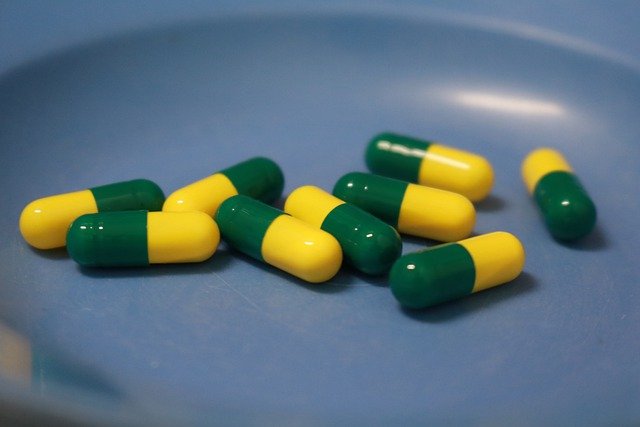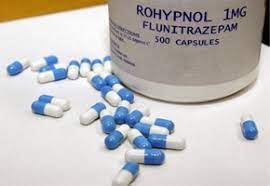Top 5 Abused Substances by Nigerian Youths
By: Grace Chukwuekwu, Freelance writer and Datelinehealth Africa Volunteer with editorial support from the Datelinehealth Africa Team
Drug abuse is a widespread issue that nearly every country in the world, including Nigeria, has to address.
The United Nations' World Drug Report indicates that almost one out of every 20 adults between the ages of 15 and 64 years were confirmed drug abusers in 2014, with over 29 million people worldwide suffering from drug abuse disorders. Adolescence is a crucial period when drug abuse typically begins, and it is forming a student subculture in Nigeria, leading to several adverse effects on the national community.
In Nigeria, more than 30 million people are aged between 10 and 19 years, and about one-third of the total population falls in the 10 to 24 years age bracket. During this period, the adolescent brain is still developing and is, therefore, vulnerable and immature, with a reduced capacity to make sound decisions and assess situations. Consequently, most people start abusing drugs during adolescence and young adulthood, leading to the development of associated complications.
In Nigeria, the age of first cannabis use typically occurs at 19 and 21 years old respectively and this early initiation is associated with a higher likelihood of developing substance abuse disorders later on.
.jpg) 1. Cannabis
1. Cannabis
Cannabis, also known as marijuana or weed, is a plant-based substance that contains a psychoactive compound called delta-9-tetrahydrocannabinol (THC), which produces a "high" when consumed.
It is often smoked, vaporized, or ingested in various forms such as edibles or oils. According to the National Drug Law Enforcement Agency (NDLEA), cannabis is the most commonly abused drug in Nigeria, with over 10 million young people estimated to use it regularly.
The negative effects of cannabis abuse can be severe and these include:
The Centre for Research and Information on Substance Abuse (CRISA), found cannabis abuse to be associated with criminal behavior and increased risk of HIV/AIDS infection among Nigerian youths.
2. Tramadol
Tramadol is a synthetic opioid pain medication used to manage moderate to severe pain. It works by binding to opioid receptors in the brain, which blocks pain signals and provides a sense of euphoria.
 A 2019 UN report ranked tramadol as Nigeria’s second most consumed drug after cannabis. Seizure volumes were reported to have grown year after year, with 53 tons of tramadol having been confiscated in 2016, 92 tons in 2017 and 150 tons in 2018 - the year it was restricted.
A 2019 UN report ranked tramadol as Nigeria’s second most consumed drug after cannabis. Seizure volumes were reported to have grown year after year, with 53 tons of tramadol having been confiscated in 2016, 92 tons in 2017 and 150 tons in 2018 - the year it was restricted.
Tramadol's effects on the body can range from mild to severe, depending on the dosage and frequency of use.
In addition to pain relief and euphoria, tramadol can cause:
Long-term use of tramadol can lead to:
Tramadol abuse can also lead to social and economic problems, such as job loss, financial instability, and criminal behavior.
Abuse of tramadol is a growing problem in many parts of the world, including Nigeria.
Tramadol is widely available in Nigeria and is often abused as a cheap and readily available substitute for other opioids such as heroin.
The United Nations Office on Drugs and Crime claims that Nigeria has one of the highest rates of tramadol abuse in the world, with an estimated 3 million people using the drug in 2017.
3. Codeine
Codeine is a narcotic pain reliever that comes from poppy seeds. It works by binding to opioid receptors in the brain and spinal cord, which can provide pain relief and a feeling of relaxation.
 The prevalence of codeine abuse among Nigerian youth is cause for concern. A 2018 study conducted by the National Agency for Food and Drug Administration and Control (NAFDAC) found that young Nigerians are abusing codeine at an alarming rate. The study also found that codeine abuse was more common in men than women.
The prevalence of codeine abuse among Nigerian youth is cause for concern. A 2018 study conducted by the National Agency for Food and Drug Administration and Control (NAFDAC) found that young Nigerians are abusing codeine at an alarming rate. The study also found that codeine abuse was more common in men than women.
The documentary Sweet Sweet Codeine is a 2018 BBC Africa Eye investigation that highlights the alarming levels of codeine abuse in Nigeria, particularly among young people. The evidence for the claim is however sketchy at best.
The investigation found that codeine was illegally sold and consumed in large quantities in Nigeria and that several pharmaceutical companies were illegally producing and distributing cough syrup containing codeine without proper regulation. This led to the Nigerian government hurriedly suspending the production and distribution of codeine cough syrup in Nigeria and arresting several pharmaceutical companies and individuals involved in the illegal production and distribution of the drug.
The negative effects of codeine abuse can be severe and long-lasting.
In addition to physical dependence and withdrawal symptoms, codeine abuse can cause a variety of health problems, including:
The documentary film Sweet Sweet Codeine is a wake-up call to Nigeria, emphasizing the urgent need to tackle the problem of codeine abuse and the production and distribution of illegal drugs in Nigeria.

Sweet sweet codeine: Nigeria's cough syrup crisis - BBC Africa Eye documentary
Click on image to view. (53 min.).
4. Rohypnol
This drug is also known by its street name as "roofies". It is a powerful sedative and hypnotic drug that is part of the benzodiazepine class of drugs.
 Rohypnol is a prescription medication used to treat severe insomnia and anxiety disorders. But it is also being used as a recreational drug and is often abused due to its ability to produce a feeling of relaxation and euphoria.
Rohypnol is a prescription medication used to treat severe insomnia and anxiety disorders. But it is also being used as a recreational drug and is often abused due to its ability to produce a feeling of relaxation and euphoria.
The effects of Rohypnol on the body can vary depending on the dosage and method of use.
When taken in high doses, Rohypnol can lead to:
The prevalence of Rohypnol abuse among Nigerian youths is not well-documented, but it is believed to be a growing problem.
According to a report by the United Nations Office on Drugs and Crime, benzodiazepines are the most commonly used drugs after cannabis in Nigeria, and there has been an increase in the abuse of prescription drugs in recent years.
5. Cocaine
Cocaine is a highly addictive stimulant drug that is increasingly becoming popular among Nigerian youths. It is often smuggled into the country from South America and Europe.

Cocaine is a powerful stimulant drug that is derived from the leaves of the coca plant. It is a Schedule II drug under the United States Controlled Substances Act, which means it has a high potential for abuse and can lead to severe psychological or physical dependence.
When administered, cocaine produces an immediate euphoric high that can last from a few minutes to a few hours, depending on the method of administration.
Cocaine can be self-administered through snorting, smoking, or injecting, and it produces a range of effects on the body.
The effects of cocaine on the body can vary depending on the method of use, the dose, and the purity of the drug.
Some of the short-term effects of cocaine include:
Long-term use of cocaine can lead to serious health problems, including:
Cocaine is highly addictive, and its abuse is a significant problem among Nigerian youths.
According to the National Drug Law Enforcement Agency (NDLEA), cocaine is growing in Nigeria, with the highest prevalence of use in the country's urban centers. The agency reports that cocaine use among Nigerian youths has increased significantly in recent years, and it is estimated that approximately 5.6% of Nigerians aged 15-64 have used cocaine at least once in their lifetime.
The purpose of the article is to provide information on the top 5 abused substances among youths in Nigeria in order to increase awareness and understanding of the prevalence and risks associated with substance abuse. More research is needed to inform policy about how to tackle the growing menace of substance abuse among Nigerian youths.
1. BBC Africa Eye. (2018). Sweet Sweet Codeine. Accessed April 21, 2023.
2. Drug Enforcement Administration. (2021). Rohypnol. Accessed April 21, 2023.
3. United Nations' World Drug Report. United Nations publication; 2018. Sales No. E.18.XI.9. Accessed April 21, 2023.
4. Nabofa OE. New trend of drugs abused by secondary school students in Nigeria. Afr Health Sci. 2021 Sep;21(3):1460-1466. doi: 10.4314/ahs.v21i3.57.
5. Ajibulu E. Eradicating drug abuse in Nigeria; How feasible? Modern Ghana. 2011. Accessed April 21, 2023.
6. National Bureau of Statistics. (2017). Drug Use in Nigeria 2018 Survey Report. Abuja: National Bureau of Statistics. Accessed April 21, 2023.
7. United Nations Office on Drugs and Crime (UNODC) Global Synthetic Drugs Assessment 2020. Accessed April 25, 2023.
8. World Health Organization. Tramadol Update Review. Proceedings from the Expert Committee on Drug Dependence. Thirty Sixth meeting, Geneva: 16-20 June, 2014. World Health Organization. [Google Scholar]
9. National Drug Law Enforcement Agency. (2021). Drug Use in Nigeria. 2018 Annual Report. Accessed April 25, 2023.
10. National Agency for Food and Drug Administration and Control. (2018). Public Alert on Codeine Containing Cough Syrup in Nigeria. National Agency for Food and Drug Administration and Control. Abuja. Nigeria.
11. Obiechina GO, Isiguzo BC. Curbing the Menace of Drug Use among Secondary School Students in Nigeria. European Journal of Research and Reflection in Educational Sciences. 2016;4(1):2056–5852.
Related: Substance abuse in Nigeria: What you need to know.
Published: April 26, 2023
© 2023. Datelinehealth Africa Inc. All rights reserved.
Permission is given to copy, use and share content without alteration or modification and subject to attribution as to source.
DATELINEHEALTH AFRICA INC., is a digital publisher for informational and educational purposes and does not offer personal medical care and advice. If you have a medical problem needing routine or emergency attention, call your doctor or local emergency services immediately, or visit the nearest emergency room or the nearest hospital. You should consult your professional healthcare provider before starting any nutrition, diet, exercise, fitness, medical or wellness program mentioned or referenced in the DatelinehealthAfrica website. Click here for more disclaimer notice.